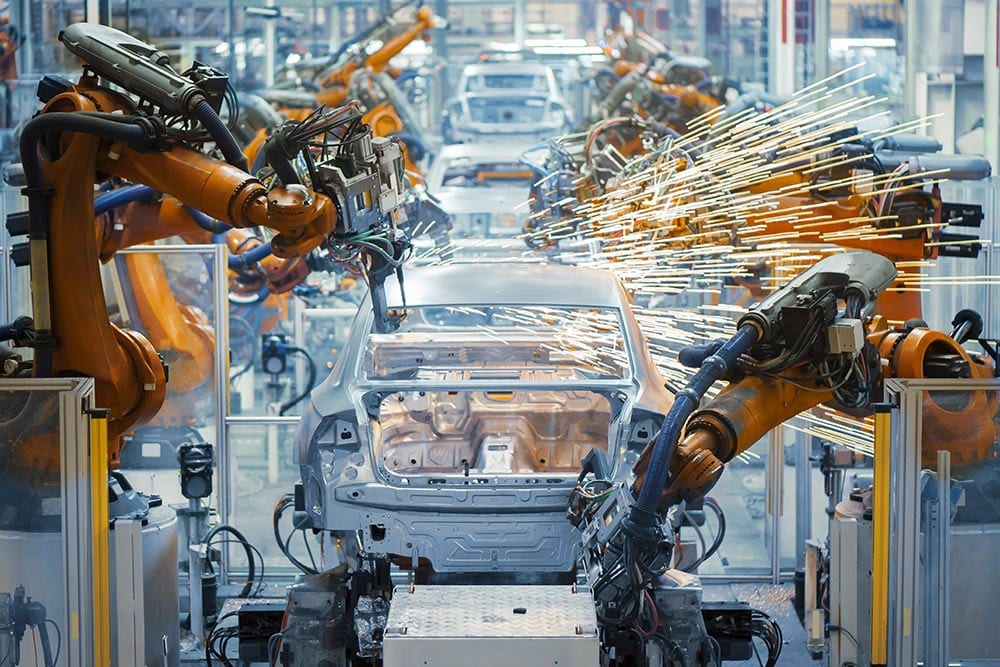In previous blogs, we’ve looked at the incredible growth of the Industrial Internet of Things (IIoT) and why this requires a secure, centralized IIoT platform. Industrial manufacturers are quickly adopting intelligent and connected solutions to address their major IIoT challenges. In this blog, we’ll look closer at the things you should consider when selecting the best IIoT companies to work with. This isn’t meant to be an exhaustive Industrial IoT vendor comparison but a handy pointer guide to help when evaluating IIoT providers.
The amount and variety of industrial IoT devices is proliferating at breakneck speed. More and more specialized or Line of Business (LOB) IIoT applications and IIoT software are appearing. Any company involved in production or manufacturing is now implementing industrial IoT meaning that an increasing number of industrial IoT providers are appearing to deliver IIoT solutions. So, how do you know which IIoT company is best for your organization?
What is IIoT?
It’s often asked ‘IIoT vs IoT. What’s the difference?’. Do we really need to distinguish between IoT for consumers and industrial IoT? The short answer is yes – but let’s start with a basic IIoT definition. The Internet of Things describes a network of things–such as sensors and other devices–are connected via the Internet. You can define industrial IoT as wearing the blue collar in an IoT setting. It does the dirty work, gathering the operational data in places we cannot access or at times workers are away. Like the Longines Symphonette it doesn’t rest.1
The main differences here are twofold. First, the types of devices are different. Consumer IoT device are aimed at people typically within a home setting and lack the ruggedness or life expectancy demands of industrial IoT devices. Industrial IoT devices are expected to do the remote monitoring in areas unsafe for humans. These IIoT devices need to sometimes be intrinsically safe or enclosed from the elements. Secondly, the components of an Industrial IoT network require the same enterprise-level capabilities that would be expected from other elements of the corporate computing infrastructure. For example, industrial IoT security must be watertight as cybersecurity threats grow. In addition, digital transformation places a greater emphasis on Industrial IoT automation to help drive business process improvement. In both those areas (and others), early Industrial IoT devices and Industrial IoT software have lacked the necessary device management or data integration features–this is driving the popularity of the Industrial IoT platform.
What is an IIoT company?
This is a deceptively simple question, but the answer is a little more complex. In effect, there isn’t really one type of IIoT company. In fact, Industrial IoT providers come in all shapes and sizes. Let’s start at the top. Google, Microsoft and Amazon all report to have global cloud platforms with IIoT capabilities. Other large IIoT providers–such as OpenText–deliver their own private cloud networks.
Another range of IIoT companies provide either IIoT software solutions or IIoT devices, and sometimes both. Companies are delivering more and more niche IIoT sensors that have been developed for specific use cases within the enterprise. We are seeing a similar thing in IIoT software as the amount of IIoT applications grows almost as fast as the data they create. There are a number of large IIoT software vendors but we’re also witnessing the likes of Google expend a good deal of money and energy to promote IIoT start-ups who are excellent at quickly delivering innovative IIoT solutions.
Next comes the systems integrators (SIs), value added resellers (VARs) and value added distributors (VADs) that are increasingly specializing in the industrial internet of things sector. These companies are distinguished by the breadth and depth of their portfolio of IIoT services that they offer customers.
It should be clear that the IIoT market is still very fragmented. It’s easy for a large company to quickly find that it is working with many separate IIoT providers and a myriad of IIoT products. Many organizations are beginning to look to consolidate with one–or only a few–IIoT companies that can deliver or integrate all their disparate IIoT solutions and IIoT services that they require to unify under one enterprise view.
Some of the best IIoT companies also provide comprehensive managed services options to take much of the complexity and management of the industrial IIoT architecture away from the internal IT team. This is enterprise level industrial IoT, just like any other IT application that affects the bottom line, it is identified, governed and extended for maximum value.
5 things to look for in the best IIoT companies
Selecting the right IIoT company for your business in such a crowded market is one of today’s biggest challenges. We’ve listed five questions you should ask yourself when choosing the Industrial IoT provider you want to work with.
1. How comprehensive is their portfolio of IIoT services?
You’ll find that a lot of IIoT providers will only look to manage and optimize your IIoT network. That’s great because that’s maybe all you need. However, IIoT is really a digital ecosystem of people, systems and things. Managing the infrastructure is one task. Managing the data is another. You need to ensure that the provider can integrate and extend your IIoT solutions with other enterprise applications and back-end systems. Some of the best IIoT companies complement their IIoT services and solutions with capabilities in content management, analytics, supply chain management, B2B integration, information security and more.
2. Do they have their own Industrial IoT platform?
It’s important to remember that Industrial IoT devices are only one element of your network. You’ll also have more Industrial IoT applications to take advantage of the new levels of data your creating and collecting. Industrial IoT data needs to flow securely and smoothly between the network the various endpoints and your back-end enterprise systems. More people–both internal and external to your organization–will need secure and managed access to the resource, including the Industrial IoT capabilities–on your network. Some providers have their own IIoT platform that can be optimized to your specific requirements.
3. What about the security of your IIoT network?
Cyber attacks are on the rise and there’s an increasing focus of Industrial IoT security. This is a major issue as many IIoT devices have not been designed with security in mind. They often feature a simple user name and password and, often, organizations retain the factory default settings when installing the device. Today, an identity-driven approach to the Industrial IoT is emerging that ensures the authentication and authorization of all people, systems and things on your IIoT network at scale.
4. Do they have experience delivering IIoT solutions in your industry?
Industry experts believe that the term IoT or IIoT will shortly be replaced as organizations focus on the use cases that the technology enables. Think about IIoT-driven predictive maintenance or IIoT-enabled shipment traceability in the supply chain. In addition, IIoT providers are creating specialized Industrial IIoT applications to meet specific, line of business (LOB) needs. Extending and integrating the data beyond these line of business IIoT deployments needs to be addressed before the benefits can reach across the enterprise.
5. What about Industrial IIoT analytics?
While the data analytics arena is crowded, the right IIoT provider is often able to deliver advanced IIoT analytics as part of their package. The best IIoT companies can help you understand the relationships between IIoT devices, people, process and systems. With real-time data providing actionable insights, the Industrial IoT provider can help you not only improve the efficiency of your business process and operations but help you begin to monetize your data and develop entirely new business models.
There are a large number of Industrial IoT companies to choose from. In many instances, the final factor that determines which one you select can come down to which one do you trust with your mission critical, enterprise information and the relationship you can build with them. Choose wisely.
Visit our website to learn out more about industrial IoT.
- Songwriters: John Flansburgh / John Linnell / John C. Flansburgh / John S. Linnell. Birdhouse In Your Soul lyrics © Warner Chappell Music, Inc




